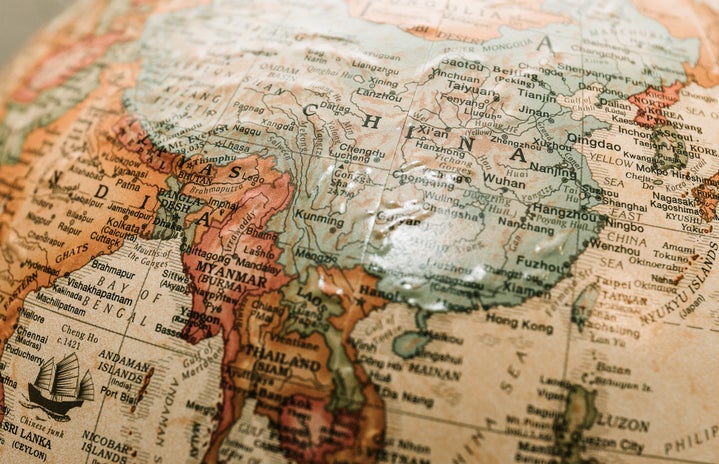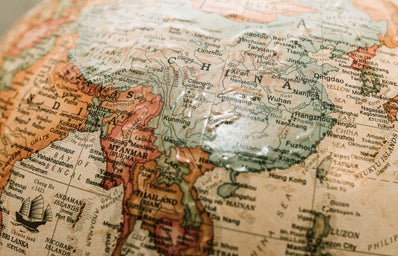The world is watching with bated breath as tensions escalate between China and Taiwan, with growing fears of a potential Chinese invasion of the self-governing island. While the exact timeline remains uncertain, various trigger points highlight potential windows of vulnerability or tension in the coming years.
The Taiwanese presidential elections in January 2024, the U.S. presidential elections in November 2024, Taiwan’s military prediction of China’s readiness to invade by 2025, the centennial of China’s People’s Liberation Army in 2027 and the U.S. nearing semiconductor sovereignty around 2030 are all defining moments that could influence the dynamics surrounding a potential invasion.
The consequences of such an event would be catastrophic on a global scale, rippling through economies, supply chains and geopolitical dynamics.
One of the most significant ramifications would be world trade devastation, a scenario that experts are sounding the alarm about. James Cleverly, the UK’s foreign secretary, starkly warned, “A war across the Strait would not only be a human tragedy, it would destroy world trade worth $2.6 trillion.”
Taiwan is a thriving democracy and a pivotal link in global supply chains, particularly for producing advanced semiconductors, which power everything from smartphones and computers to military equipment and infrastructure.
With about half of the world’s container ships passing through the Taiwan Strait each year, disrupting these vital waters would have far-reaching consequences for economies worldwide.
The impact on the semiconductor industry, in particular, would be crippling.
According to a Resilinc special report, China accounts for a staggering 60% of global chip demand, with 90% of that demand supplied by foreign firms, primarily those in Taiwan.
If Taiwan’s microchip factories were seized or destroyed in the conflict, the world could experience an economic crisis on the scale of the Great Depression, as these advanced chips are essential for countless industries and technologies.
Even if China were to gain control of Taiwan’s semiconductor industry, it could wield immense power by cutting off advanced chip sales to the U.S. and its allies, significantly reducing their technological, economic and military advantages.
Furthermore, a Chinese invasion of Taiwan would likely escalate into a broader conflict involving the U.S. and its regional allies, with potentially catastrophic consequences.
The Center for Strategic and International Studies (CSIS) simulated such a scenario, concluding that while the U.S. and its allies would ultimately prevail, the costs would be staggering, with “dozens of ships, hundreds of aircraft, and tens of thousands of service members” lost.
The implications of such losses would not only be devastating for the families involved but could also severely undermine the U.S. global position and influence for years to come.
Moreover, the conflict would likely result in the near-total devastation of Taiwan’s economy, which has thrived as a result of its democratic institutions and close ties with the West.
The humanitarian toll of a Chinese invasion would also be immense, endangering the safety and well-being of the Taiwanese population and potentially leading to a full-blown humanitarian crisis.
With a population of over 23 million, the potential for widespread displacement, civilian casualties, and a severe strain on resources and infrastructure is alarmingly high.
The conflict could also destabilize global supply chains, disrupt financial markets and undermine international trade dynamics, with ripple effects felt across industries and economies worldwide.
While the likelihood of an all-out invasion is estimated at around 35% by Global Guardian experts, the possibility of a diplomatic solution remains slim at 5%.
The most likely scenario, with a 60% certainty, is a limited conflict, such as a blockade aimed at isolating Taiwan and disrupting its economic, supply chain and communications operations.
Even this seemingly less extreme option would have severe consequences, potentially serving as a precursor to further escalation and conflict.
As the world stands at the precipice of this potential crisis, the international community must unite in its efforts to prevent such a catastrophic event.
Diplomatic endeavors and the potential deployment of military measures could be crucial in condemning any aggression and advocating for a peaceful resolution.
The consequences of a Chinese invasion of Taiwan would reverberate globally, underscoring the urgent need for diplomacy, open communication and the preservation of regional stability and international order. Failure to address this looming threat could plunge the world into a conflict with unimaginable costs regarding human life and economic prosperity.


